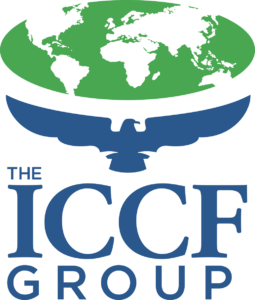Agenda & Featured Speakers:
Keynote from Senator Chris Coons (D-DE)
Introduction to the Global Initiative to End Wildlife Crime
John Scanlon, Chairperson, Global Initiative to End Wildlife Crime and former Secretary-General of CITES
John served as Secretary-General of CITES from 2010-2018. He is now CEO of the Elephant Protection Initiative Foundation, Chair of the Global Initiative to End Wildlife Crime and Chair of the UK Government’s Illegal Wildlife Trade Challenge Fund. John has previously worked in the private sector, in government and in senior positions with IUCN and UNEP.
Susan Lylis, Executive Vice President, the ICCF Group
Susan serves as the Executive Vice President of The ICCF Group, overseeing global programs and teams which support leaders in governments throughout Africa, Asia, Latin America, and the Caribbean in developing conservation caucuses in their parliaments. Susan serves on the steering group of the Global Initiative to End Wildlife Crime, representing the ICCF Group as a founding member.
Panel: UNTOC Wildlife Protocol
Dr. Meredith Gore, Department of Geographical Sciences at the University of Maryland
Dr. Gore is an Associate Professor in the Department of Geographical Sciences at University of Maryland. She has published over 100 scholarly products on conservation criminology, including wildlife trafficking, illegal fishing, and illegal logging based on extramurally-funded fieldwork on four continents.
Marcus Asner, Partner, Arnold & Porter
Marcus is co-chair of Arnold & Porter’s White Collar practice. He previously served as a federal prosecutor in Manhattan and led the prosecution of United States v. Bengis, one of the most significant wildlife trafficking cases in history. Marcus served on President Obama’s Advisory Council on Wildlife Trafficking.
Christine Dawson, Director of the Office of Conservation and Water, Bureau of Oceans and International Environmental and Scientific Affairs, U.S. State Department
Christine is Director of the Office of Conservation and Water at the U.S. State Department. She has worked in the U.S. Senate, The Aspen Institute, Georgetown University, and the UN Food and Agriculture Organization in Rome. Ms. Dawson has been a member of the Council on Foreign Relations since 1994.
Panel: CITES Proposal
Craig Hoover, Vice President, Association of Zoos and Aquariums (AZA)
Craig is Executive Vice President of the Association of Zoos and Aquariums. He also serves as a special advisor to the Global Initiative to End Wildlife Crime. Craig spent 20 years with the U.S. Fish and Wildlife Service, including as the head of the U.S. CITES Management Authority.
Professor Christina Voigt, Department of Public and International Law, University of Oslo
Christina is a renowned expert in international environmental law and professor of law at the University of Oslo. She represents the IUCN World Commission on Environmental Law. The Commission is a Champion of the End Wildlife Crime Initiative.
David Quammen, Author of Spillover: Animal Infections and the Next Human Pandemic
David an author and journalist. His sixteen books include Spillover: Animal Infections and the Next Human Pandemic, published in 2012. His journalism on the subject of emerging viruses and pandemic threats has appeared in the New York Times, The New Yorker magazine, National Geographic, and other magazines and papers.
Event moderated by Sally Yozell, Senior Fellow and Director, Environmental Security Program at the Stimson Center
Sally is a Senior Fellow and Director of the Environmental Security program at the Stimson Center. Prior to joining Stimson, Yozell was a Senior Advisor to the Secretary of State where she provided advice and technical expertise to advance U.S. policies in the international arena related to ocean, climate, and wildlife protection.
This event is co-hosted by the ICCF Group.

